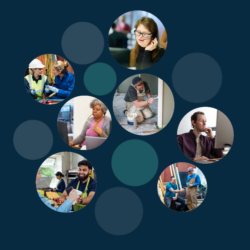To provide the best experiences, we use technologies like cookies to store and/or access device information. Consenting to these technologies will allow us to process data such as browsing behaviour or unique IDs on this site. Not consenting or withdrawing consent, may adversely affect certain features and functions.
The technical storage or access is strictly necessary for the legitimate purpose of enabling the use of a specific service explicitly requested by the subscriber or user, or for the sole purpose of carrying out the transmission of a communication over an electronic communications network.
The technical storage or access is necessary for the legitimate purpose of storing preferences that are not requested by the subscriber or user.
The technical storage or access that is used exclusively for statistical purposes.
The technical storage or access that is used exclusively for anonymous statistical purposes. Without a subpoena, voluntary compliance on the part of your Internet Service Provider, or additional records from a third party, information stored or retrieved for this purpose alone cannot usually be used to identify you.
The technical storage or access is required to create user profiles to send advertising, or to track the user on a website or across several websites for similar marketing purposes.
 The British Furniture Confederation (BFC), the public affairs umbrella body of furniture and beds, furnishings and flooring sector trade associations, has unveiled its new Plan for Growth. The document supports BFC’s advocacy across four key pillars: skills and education; trade and exports; standards and regulations; and the environment and circular economy. It has been developed over the past few months, evolving from a combination of position papers written by the associations’ executives and a comprehensive survey of their collective members. (more…)
The British Furniture Confederation (BFC), the public affairs umbrella body of furniture and beds, furnishings and flooring sector trade associations, has unveiled its new Plan for Growth. The document supports BFC’s advocacy across four key pillars: skills and education; trade and exports; standards and regulations; and the environment and circular economy. It has been developed over the past few months, evolving from a combination of position papers written by the associations’ executives and a comprehensive survey of their collective members. (more…)


































October 21, 2024
The rise of the part time office opens up a new frontier for market growth
by David Rawlence • Comment, Flexible working, Property